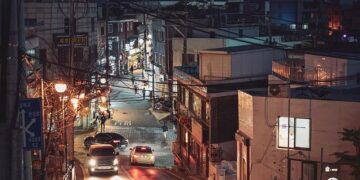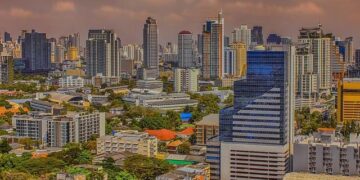Residents of informal camps in Jordan are facing forced displacement, raising serious human rights concerns, according to a recent report by Human Rights Watch. The international organization warns that these actions threaten the safety and dignity of thousands of vulnerable individuals, many of whom are refugees reliant on these makeshift communities for shelter and basic services. This development highlights ongoing challenges in addressing displacement and humanitarian needs within the country.
Displacement of Informal Camp Residents Raises Alarming Human Rights Concerns
The forced displacement of residents from informal camps in Jordan has sparked significant international concern, as reports reveal widespread violations of basic human rights. Families uprooted overnight face a stark reality: loss of shelter, access to essential services, and security. Many displaced individuals are left without proper legal documentation or alternative housing options, raising urgent questions about the state’s adherence to international humanitarian standards. Observers note a troubling pattern of inadequate consultation, insufficient notice periods, and a lack of fair compensation, exacerbating already vulnerable conditions for thousands.
Human rights monitors have highlighted several critical issues arising from these displacements:
- Lack of transparent communication between authorities and affected communities
- Disruption of children’s education and health services
- Increased risk of exploitation and abuse in temporary shelters
- Minimal involvement of non-governmental organizations in relief efforts
| Impact Area | Consequences for Residents |
|---|---|
| Housing | Complete loss of permanent shelter, overcrowding in temporary sites |
| Access to Services | Interruption of medical care and education for children |
| Legal Status | Lack of proper documentation impedes aid and legal protection |
| Security | Increased vulnerability to exploitation and violence |
Living Conditions and Access to Services Under Strain in Jordan’s Informal Settlements
Residents in Jordan’s informal settlements are facing increasingly precarious living conditions as essential services become overburdened and unreliable. Many families reside in makeshift shelters lacking proper insulation, sanitation, and ventilation, exposing them to harsh weather and health risks. Access to clean water and electricity remains inconsistent, with outages and shortages frequently reported. These challenges are exacerbated by the government’s limited capacity and resources to extend basic infrastructure to these marginalized communities, leaving vulnerable populations trapped in a cycle of deprivation.
Health care, education, and sanitation facilities are strained beyond capacity. Clinics serving these settlements are overcrowded and under-resourced, with critical shortages in medical supplies and qualified personnel. Schools, meanwhile, struggle to accommodate a growing youth population, resulting in overcrowded classrooms and interrupted learning schedules. Public sanitation services are often insufficient, leading to hazardous waste accumulation. The following table highlights key service gaps experienced by informal camp residents:
| Service | Reported Issues | Impact |
|---|---|---|
| Water Supply | Intermittent flow, contamination risks | Increased illness, difficulty in hygiene |
| Electricity | Frequent cuts, illegal connections | Safety hazards, limited night-time activity |
| Health Clinics | Staff shortages, medicine scarcity | Delayed treatments, preventable diseases |
| Education | Overcrowding, limited resources | Diminished learning outcomes, dropout rates |
Human Rights Watch Urges Jordanian Authorities to Ensure Protection and Durable Solutions
Human Rights Watch has sharply criticized recent actions by Jordanian authorities that led to the displacement of residents from informal camps. The evictions, carried out without adequate notice or alternative housing options, have intensified the vulnerability of already marginalized populations, many of whom face limited access to essential services. Observers warn that these forced displacements risk escalating humanitarian challenges, especially during harsh weather conditions and amidst ongoing regional instability.
In its latest report, Human Rights Watch advocates for the implementation of durable solutions that respect residents’ rights and dignity. These include:
- Guaranteeing adequate consultation and participation of the displaced communities in decision-making processes
- Securing access to safe, affordable, and adequate housing alternatives
- Providing continuous support to meet basic health, education, and livelihood needs
- Establishing monitoring mechanisms to prevent future unlawful displacements
| Key Concern | Impact | Recommended Action |
|---|---|---|
| Lack of Notification | Disrupts daily life and planning | Enforce timely communication protocols |
| Insufficient Housing Options | Increased homelessness and insecurity | Develop sustainable housing projects |
| Limited Healthcare Access | ||
| Limited Healthcare Access | Worsening health outcomes and vulnerability | Increase healthcare services and mobile clinics |
| Lack of Community Participation | Decisions fail to address actual needs | Engage displaced people in planning and policies |
| Absence of Monitoring | Potential for repeated unlawful evictions | Establish independent oversight bodies |












